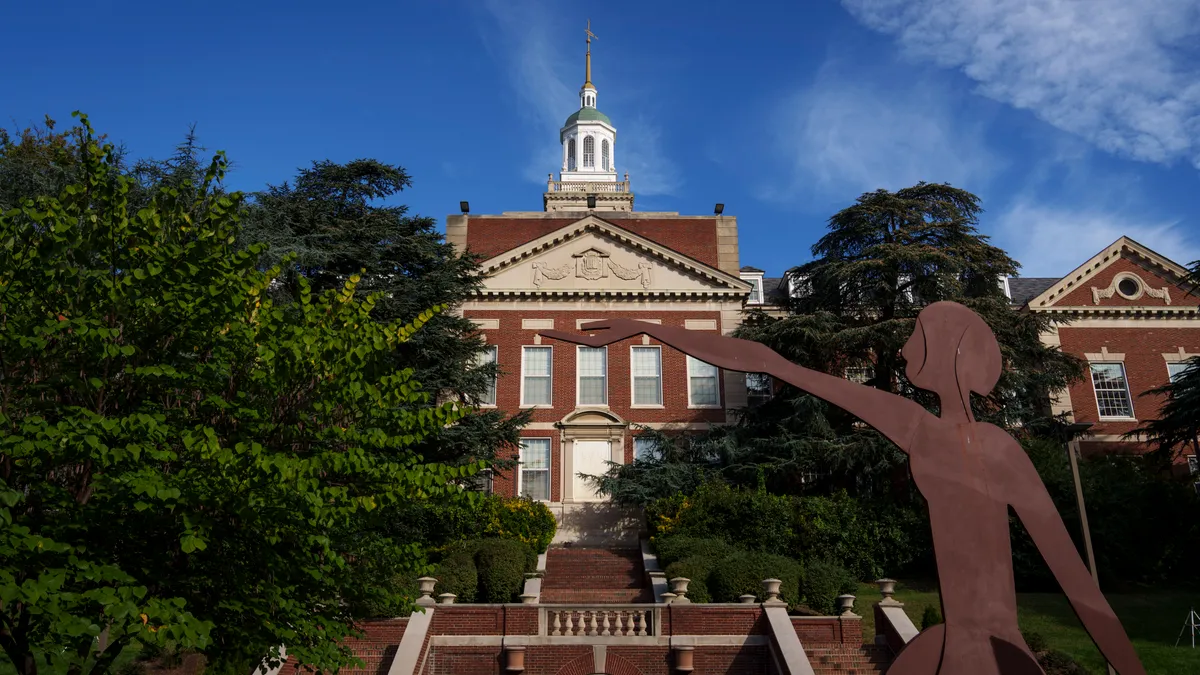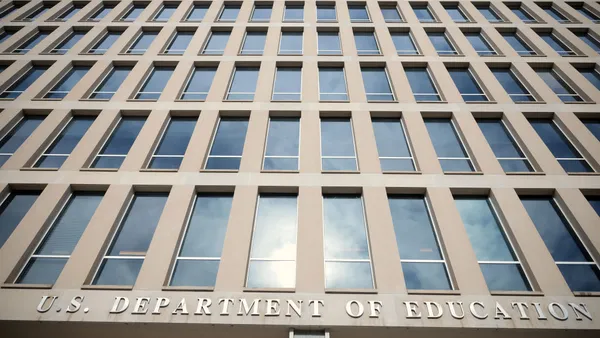Dive Brief:
- The National Institutes of Health will require colleges and other grant recipients to certify they don’t have diversity, equity or inclusion programs “in violation of Federal anti-discrimination laws” and that they aren’t boycotting Israel to receive new awards, according to a policy announced Monday.
- The policy applies to recipients of “new, renewal, supplement, or continuation awards” issued April 21 or afterward. NIH will terminate awards and claw back grant funding from organizations that violate the new terms, it said.
- The National Science Foundation likewise said Friday it would terminate awards focused on DEI as federal agencies carry out the Trump administration’s crusade against diversity initiatives.
Dive Insight:
NIH’s new policy is aligned with President Donald Trump’s moves to stamp out diversity initiatives throughout the federal government. Trump signed an executive order in January directing agencies to have grant recipients certify absence of DEI programs “that violate any applicable Federal anti-discrimination laws.”
That order and other anti-DEI directives spurred a lawsuit from two higher education organizations and other groups, who alleged the policies undermine free speech and are unconstitutionally vague. A federal district judge temporarily blocked the Trump administration from enforcing the anti-DEI directives in February, but an appeals court overturned that ruling the next month.
The challenge against the anti-DEI orders is still working its way through the court system.
NIH’s new policy also prohibits awards going to organizations “refusing to deal, cutting commercial relations, or otherwise limiting commercial relations specifically with Israeli companies or with companies doing business in or with Israel.”
The Trump administration has criticized and targeted colleges for the way they’ve handled pro-Palestinian demonstrations, many of which have called on their institutions to cut ties with weapons manufacturers and other companies with ties to Israel. Colleges have largely rejected these demands.
Even before the new policy, NIH had been canceling DEI-related grants.
Researchers, unions and others filed a lawsuit earlier this month alleging that NIH recently purged $2.4 billion worth of grants, including $1.3 billion “already spent on projects stopped midstream that is now wasted.”
The mass cancellations came after NIH issued internal guidance directing staff members to terminate DEI-related awards and other types of grant funding. One document listed three research topics that were now forbidden: DEI, transgender issues and China.
The lawsuit says the changes upend the agency’s “enviable track record of vigor and excellence, launching a reckless and illegal purge to stamp out NIH-funded research that addresses topics and populations that they disfavor.”
A group of higher education associations, including the American Council on Education, filed an amicus brief Thursday to support the lawsuit challenging the recent research cuts.
“We cannot stand by and watch a partnership that the federal government and our research institutions maintained together for decades be incomprehensibly and illegally torn apart in weeks,” Peter McDonough, vice president and general counsel at ACE, said in a statement.
Meanwhile, NIH has been told not to make payments to Harvard University and other high-profile colleges where vast swaths of research funding has been frozen by the Trump administration, according to media reports. The list also includes Brown, Columbia, Cornell and Northwestern universities.
However, NIH recently lost one major legal battle.
In February, the agency announced a 15% cap on reimbursement for indirect research costs such as building maintenance and administrative support. But a federal judge permanently blocked the policy in April, ruling that NIH has violated federal law and flouted regulatory procedures when rolling out the rate cap.
The Trump administration has since appealed the decision.












